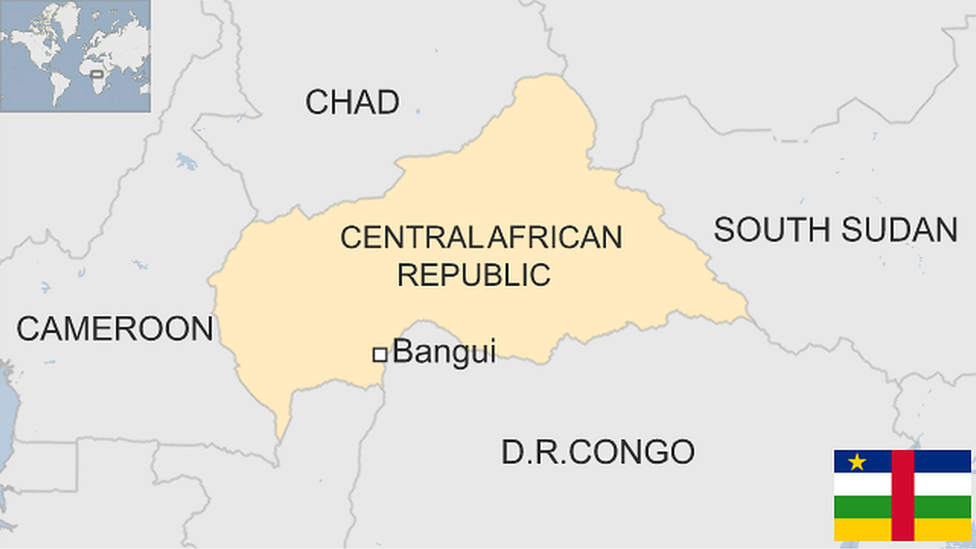Has Ugandan rebel leader Joseph Kony been defeated?
- Published
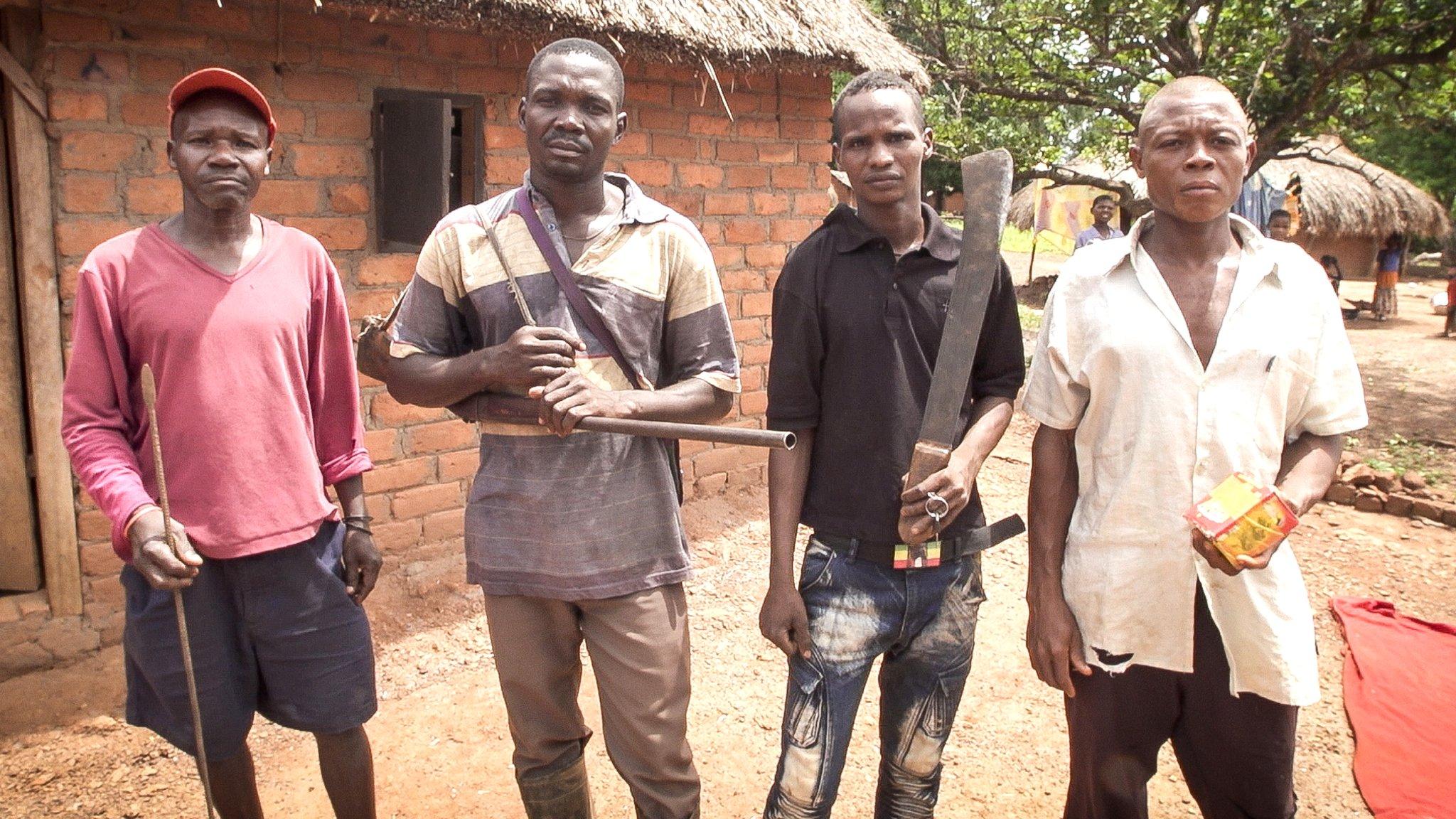
Pierre Mbolihundo and other members of his vigilante group aim to keep Obo safe
The international hunt for Joseph Kony seems to be over, but the notorious rebel leader, who was first chased from his native Uganda to South Sudan and then to the Central African Republic, is still at large. So what do those civilians most vulnerable to attacks from Kony's Lord's Resistance Army do now?
Pierre Mbolihundo tells me the wood for his locally made shotgun comes from the jungle.
The trigger and barrel, which looks like a small water pipe, come from a big town to the west.
The prized possessions in his armoury are the imported "00" shells.
"Inside there are 15 or 16 pellets. If you see the enemies and shoot them, one bullet can kill five to 10 people."
In an area under threat of attack from Joseph Kony's Lord's Resistance Army, and many other rebel groups, it is important to be resourceful.
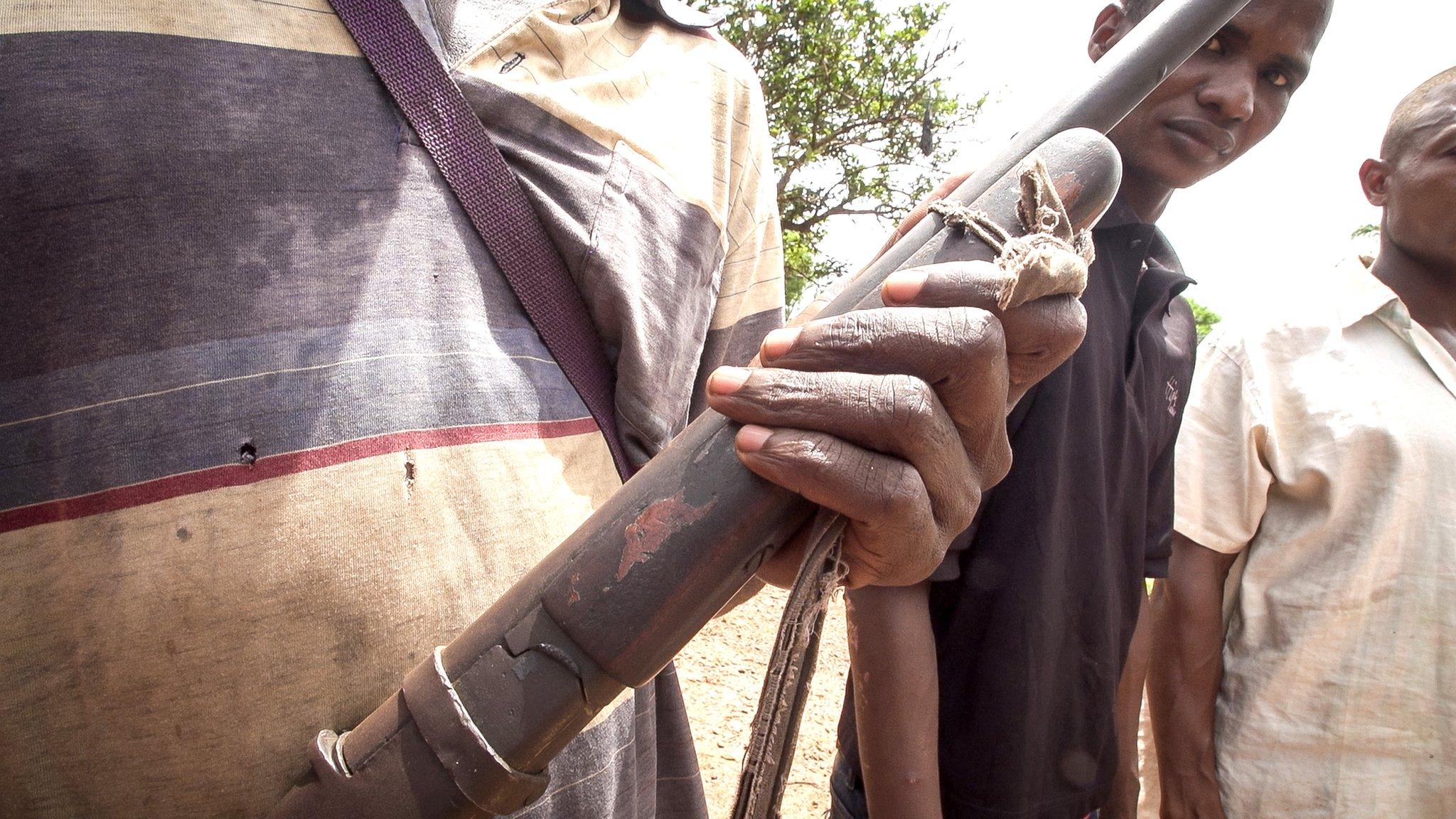
The gun is home-made and the other weapons are basic
Mr Mbolihundo is president of the Arrow Boys, a local vigilante group here in the town of Obo, in south-eastern Central African Republic.
But they are not trained and they are mostly armed with basic weapons like spears, and machetes.
The town has been relatively safe thanks to the presence of Ugandan troops supported by American forces. But now they are pulling out, saying that Kony is weak and irrelevant.
People here are not so sure.
Kony and his men first came to the Central African Republic in 2008. And as in South Sudan, the Democratic Republic of Congo and Uganda, here they are accused of looting and carrying out killings, abductions, and rapes.

Joseph Kony and the LRA
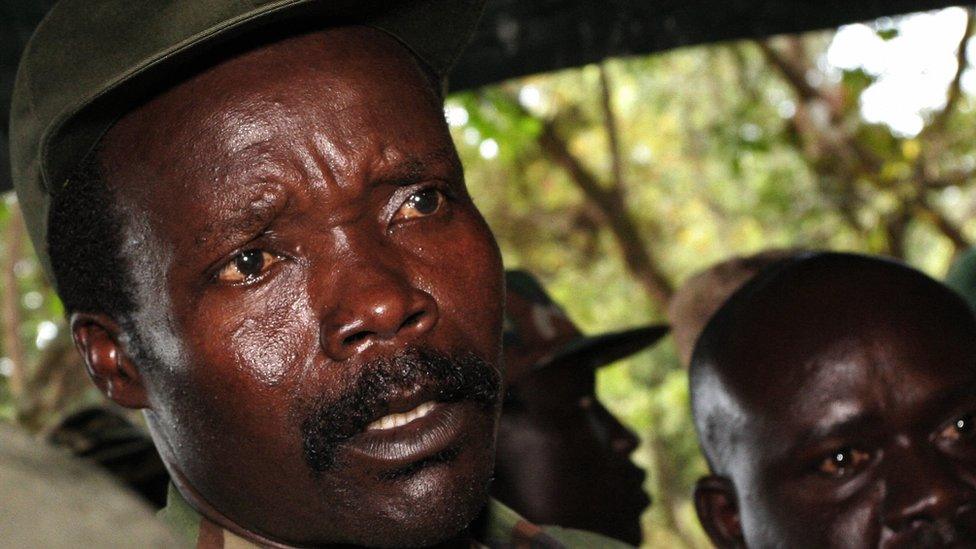
Kony founded the LRA in Uganda in the late 1980s, saying he wanted to govern according to the Biblical Ten Commandments
LRA known for terrorising population of northern Uganda
Abducted thousands of children to fight
International Criminal Court issued arrest warrant for Kony in 2005
Kony and LRA forced out of Uganda in 2006
#Kony2012 video sparked campaign to find him
US backed regional force to find Kony in 2011

In 2011, lobbying led by US charity Invisible Children prompted President Barack Obama to send about 100 soldiers to support the country's dealing with the LRA.
The aim of the mission, external was to back armies that have "the goal of removing from the battlefield Joseph Kony and other senior leadership of the LRA".
Six years on, Kony is still on the run and has a small force of around 100 fighters. But the US and Uganda, which had more than 2,000 soldiers here, have ended their mission.
"The US sees him [Kony] as irrelevant, no longer a threat. When you look at the LRA's effectiveness it's no longer what it used to be," argues US army spokesman Lt Col Armando Hernandez.
This corner of the Central African Republic has been relatively peaceful but its society has been changed dramatically by the insecurity.
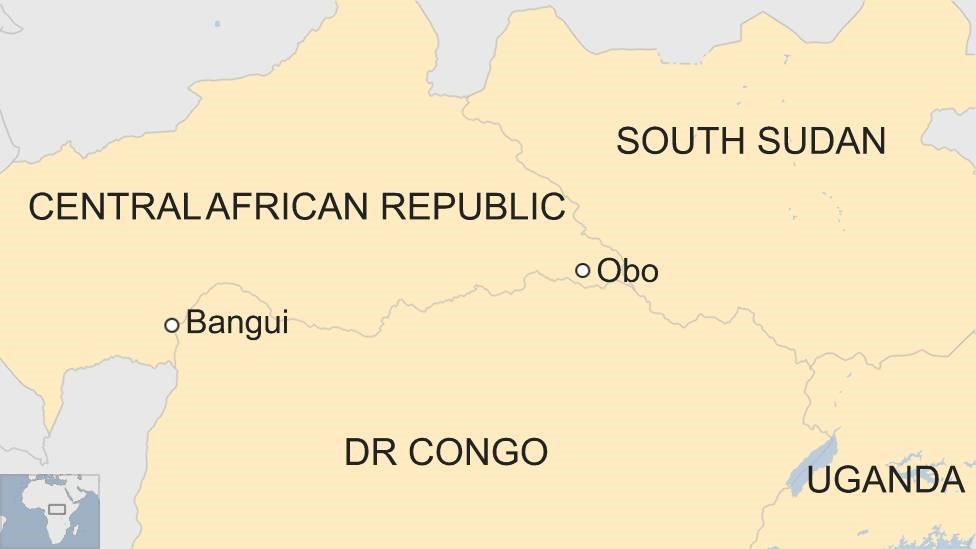
Living in a rainforest that stretches through the middle of the continent, hunting for meat, gathering wild honey and farming were fundamental to the economy.
But the militia threat has forced people to stay in towns.
Obo has become a military town; most people make money from trading with the Ugandan army.
Shops, restaurants and bars are popular along the humble main road. A lot of goods like soap, clothes and packaged food are brought in from Uganda with military convoys.
The soldiers have also brought problems.
In January, the BBC reported on allegations of sexual abuse against the Ugandan army in the CAR. We spoke to a young girl raped at 12 and made pregnant. Another teenage girl was attacked and molested in a field.
Human Rights Watch has since published a statement on the allegations, external.
Uganda's army spokesman Brig Gen Richard Karemire denied the accusations at the time, but now he says action is being taken.
"We have investigations. Whoever is found culpable will definitely be punished. We have two cases - already they are being tried in our court martial."
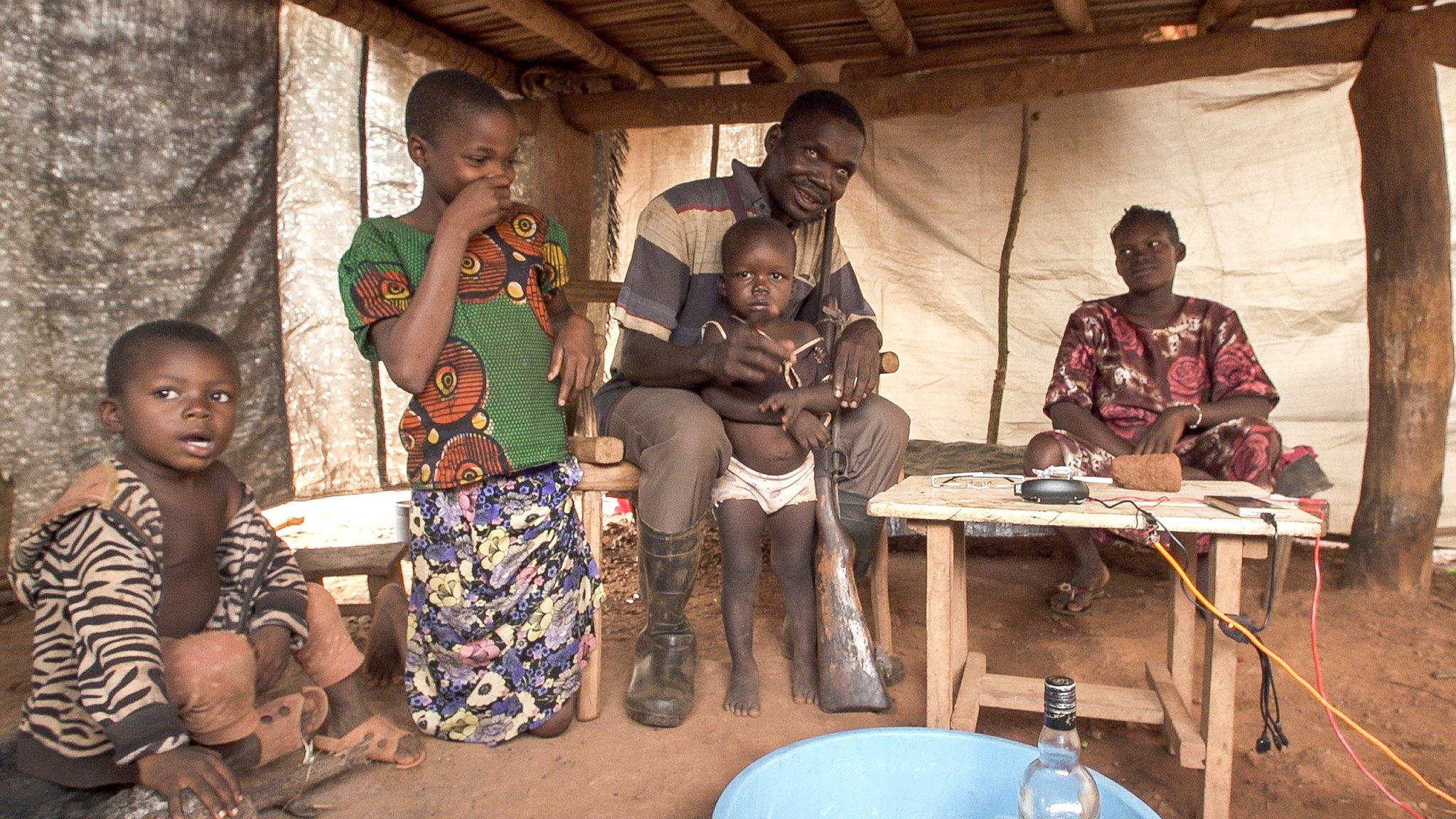
Mr Mbolihundo wants to protect his family and other members of the community
There are now fewer LRA attacks here and in neighbouring Democratic Republic of Congo than there were when the force first arrived.
But the LRA is still a threat and it is only those brave enough who venture out.
Two months ago, 52-year-old Roger Guinimboli was lucky to survive an LRA attack. He has a farm and small home in the countryside.
"When I woke up, I saw a man in uniform pointing his gun at me. They took everything from my house and my cousin's house including food like peanuts. They told us to carry the things to their camps before releasing us."
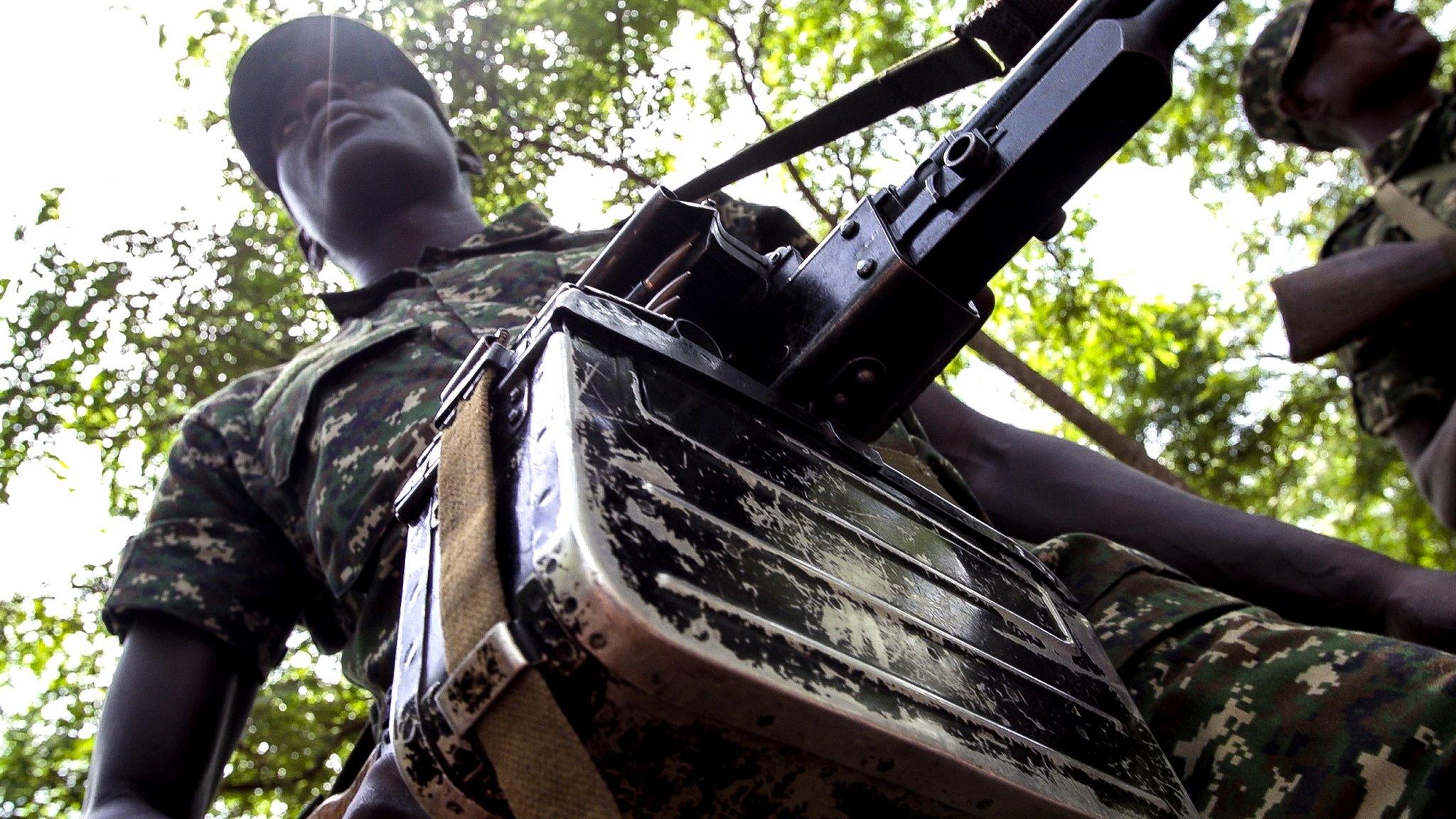
Ugandan soldiers will no longer be around to protect people in Obo
The LRA is just one of several armed groups that threaten the town. Christian and Muslim militia are also fighting as the fall-out from the country's civil war continues.
Ledio Cakaj, external has worked in the region for years and is author of When the Walking Defeats You: One Man's Journey as Joseph Kony's Bodyguard.
"Sadly it does not bode well for the civilians," he told me.
"[Government] troops and UN peacekeepers are unable to deal with various armed groups operating in the area. But they are the ones who are likely to attempt to fill in the security vacuum left by the retreating Ugandan and US troops."
As for Kony, he said: "As long as he is alive or free, he will always be able to regroup and reorganise his remaining forces as well as order the abduction of many others. Historically he has shown incredible resilience and an ability to survive."
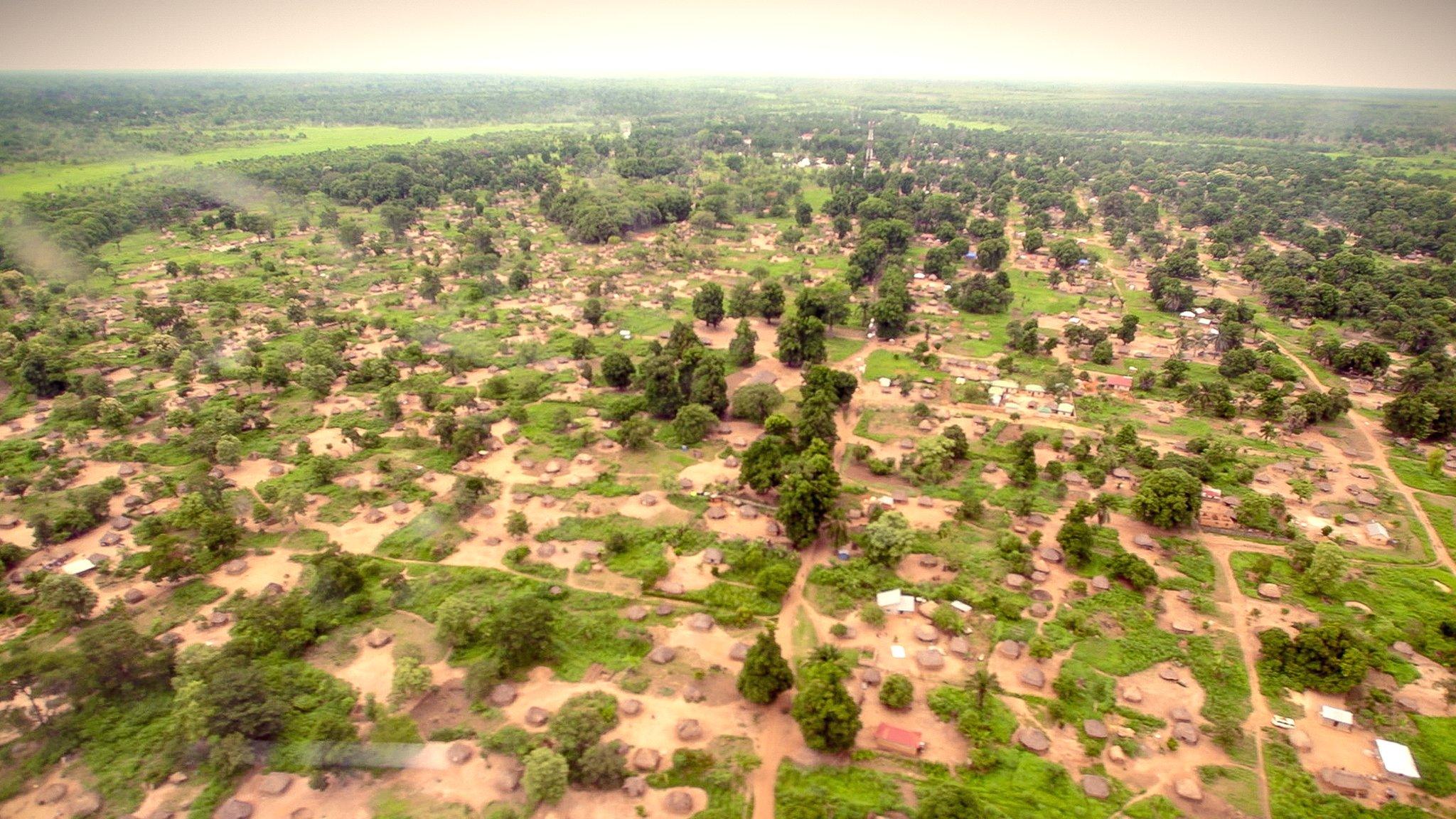
Obo is surrounded by the jungle where Kony and his men are believed to be hiding
No-one I spoke to seemed to have a ready answer as to how to provide immediate protection for the people in Obo and other towns in the region. Civilians here now have to face the same insecurity as the rest of the country, which has been in a bitter war.
As for the local vigilante leader, Mr Mbolihundo tells me he is trying to get his men ready.
"The LRA are still in the bush. If they know that the Ugandan army is going home, they will come here to disturb us because they are close."
- Published20 August 2012
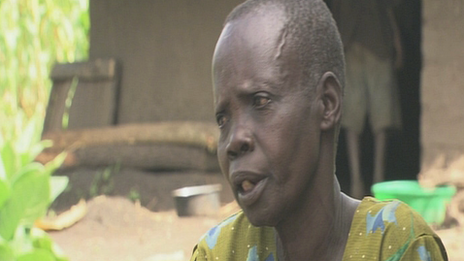
- Published10 April 2012
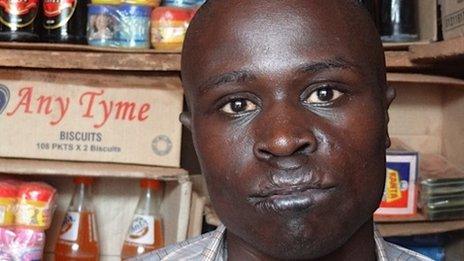
- Published22 August 2023
